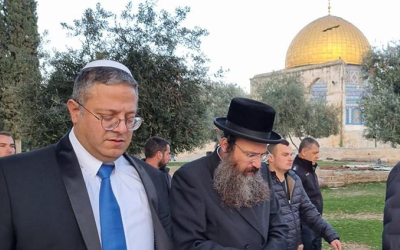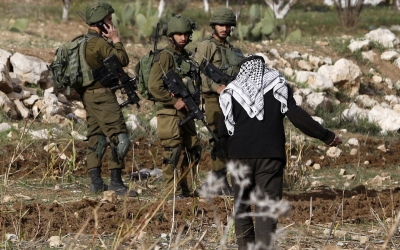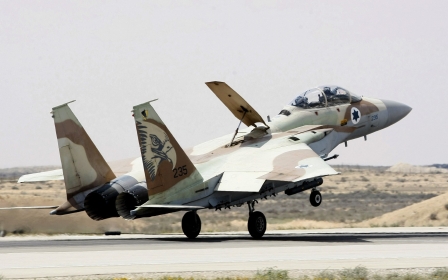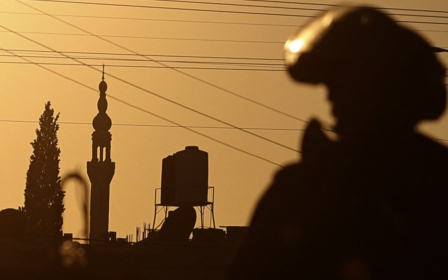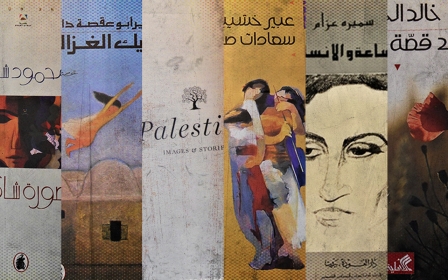Israel to continue demolishing Palestinian homes during Ramadan
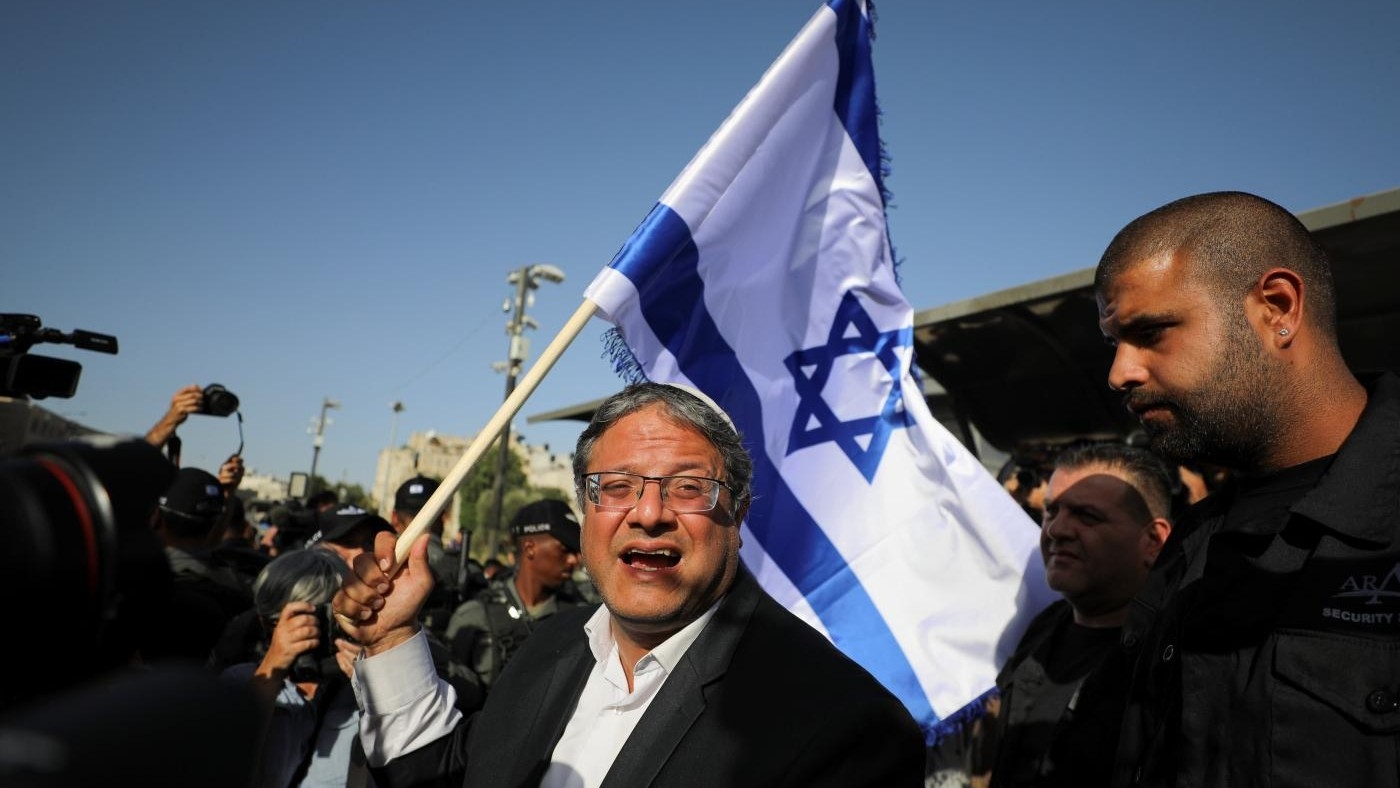
Israel’s far-right national security minister, Itamar Ben Gvir, demanded on Monday that police continue demolishing Palestinian homes during the Muslim holy month of Ramadan.
In the past, Israel has refrained from demolishing Palestinian houses in the occupied West Bank and East Jerusalem during Ramadan to avoid inflaming tensions. Demolishing homes in an occupied territory is a war crime.
This year, however, Israeli media reported that police will follow Ben Gvir's demands and demolish Palestinian homes in East Jerusalem during the holy month, when in recent years tensions have risen over Israeli violations at Al-Aqsa Mosque.
Israel demolishes Palestinian homes for various reasons, including claims they were built without permits that are near impossible to obtain from Israeli authorities. Often, Israel demolishes the homes of suspected Palestinian attackers' families, in a policy condemned by rights groups as collective punishment.
The Times of Israel reported that Israeli police have warned Ben Gvir that the force is already stretched to the limit and the approaching Ramadan period, which coincides with the Jewish holiday of Passover, could be highly volatile.
Ramadan is expected to begin on 23 March, while Passover is set for 5 April.
In a closed-door meeting, Israeli security services warned Ben Gvir that demolishing Palestinian homes during Ramadan could tip the West Bank into unrest.
Two years ago, Israeli violations in Jerusalem during Ramadan - including the attempted expulsion of families in the Sheikh Jarrah neighbourhood, sparked Hamas rocket barrages, an Israeli bombing campaign in Gaza and riots in mixed Palestinian-Jewish cities in Israel. Over 11 days, 274 Palestinians were killed by Israeli forces (243 in Gaza alone) and 13 were killed on the Israeli side.
In a leaked recording on Sunday, published in Israeli media, Ben Gvir is heard sharply criticising Israeli security officials for their intention to stop Jews from entering Al-Aqsa Mosque's courtyards for 10 days as "absolute madness and surrender to terrorism".
The Israeli security services in a separate meeting with Prime Minister Benjamin Netanyahu advised that "there is a consensus in the security services that the law enforcement operations initiated by Ben Gvir in East Jerusalem must be halted".
Earlier this year, Ben Gvir entered the Al-Aqsa Mosque's courtyards in a highly provocative move. His actions were widely condemned.
Al-Aqsa Mosque is one of the holiest sites in Islam and the site of the Jewish temple destroyed by the Romans in 70 CE.
Since Israel occupied the site following the 1967 Middle East war, Jewish prayer at the site has been officially forbidden, though far-right settlers such as Ben-Gvir (some of whom want to demolish Al-Aqsa and replace it with a third Jewish temple) have frequently prayed there under heavy security backing in recent years.
Rising tensions
Recent weeks have seen a spike in tensions which culminated in a Israeli settler rampage in the Palestinian village of Huwwara.
At least one Palestinian was killed and nearly 400 wounded in the attacks on Huwwara and other West Bank towns and villages, Palestinian health officials said.
Settlers completely burnt down at least 35 homes and 40 others were partially damaged, and many of the buildings were set on fire while their Palestinian inhabitants sheltered inside. More than 100 cars were burnt or otherwise destroyed.
Hundreds of Israeli settlers, flanked by soldiers, attacked Palestinian towns and villages near Nablus following a shooting that killed two Israelis in Huwwara town earlier in the day.
Israeli far-right finance minister Bezalel Smotrich called on the state of Israel to "wipe out" the Palestinian village of Huwwara in the wake of a violent rampage.
At least 65 Palestinians have been killed by Israelis this year, at a rate of more than one fatality per day. Meanwhile, 13 Israelis and one police officer have been killed by Palestinians in the same period.
This follows a steep increase in violence in 2022 when at least 167 Palestinians were killed in the West Bank and East Jerusalem, the highest death toll in those territories in a single year since the Second Intifada. Palestinian attacks killed 30 Israelis last year.
Middle East Eye delivers independent and unrivalled coverage and analysis of the Middle East, North Africa and beyond. To learn more about republishing this content and the associated fees, please fill out this form. More about MEE can be found here.


